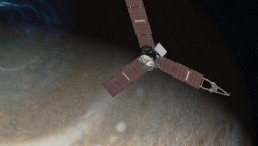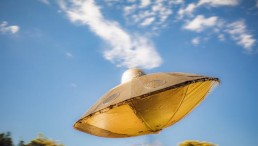One possible clue may have surfaced courtesy of observations of human's closest genetic relatives; chimpanzees, according to a research team from Kyoto University. The team reported the first ever evidence of wild chimps habitually catching and consuming freshwater crabs.
The scientists have published the results of their findings in Journal of Human Evolution, and it described year-round, freshwater crab, fishing behavior, primarily among female and infant chimpanzees, living in the rainforest of the Nimba Mountains in Guinea, West Africa.
The first author of the study and the Kyoto's University's Leading Graduate Program in Primatology and Wildlife Science, Kathelijne Koops, said that the aquatic fauna the ancestors consumed likely provided essential long-chain polyunsaturated fatty acids required for optimal brain growth and function.
He reiterated that their findings suggest that aquatic fauna may have been a regular of hominins' diets and not just a seasonal fallback food.
The research commenced in 2012 when the researchers first observed the chimpanzees fishing for crabs. For two years, the team documented the demographics and behavior of these chimps, while also analyzing and comparing the nutritional value of the crabs to other foods in the chimpanzees' diet.
The team learned that crabbing not only took place year-round, without regard to season or fruit available but intriguingly was negatively correlated with the chimps' consumption of ants, another diet staple. And the least that is likely to consume aquatic fauna are the mature males.
Koops explained that energy and sodium levels in large crabs are comparative with ants, leading the scientists to hypothesize that crabs may be an essential year-round source of protein and salts for females, especially when pregnant or nursing, and for growing juveniles.
Furthermore, the research paved the way for human evolution by revealing that fishing behaviors may not be restricted by habitat as initially assumed.
The senior author of the study, Tetsuro Matsuzawa, pointed out that this isn't the first case of non-human primates eating crabs, but it is the first evidence of apes other than humans doing so. Notably, previous observations were from monkeys species in locations consistent with aquatic faunivory, lakes rivers, or coastlines, and not in the closed rainforest.
He concluded that it is exciting to see behavior like this that allows scientists to improve their understanding of what drove the ancestors to diversify their diet. At some point ago, our primary fruit-eating ancestors put their hands in the water to catch and eat aquatic life, inadvertently supplementing their diet with nutrients that initiated a brain development process that eventually led to us.














